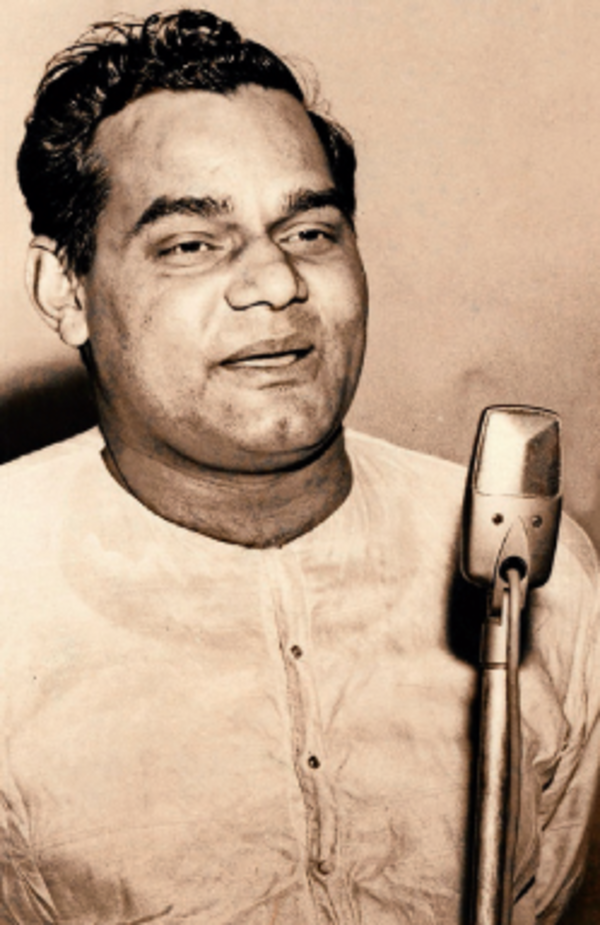Achi news desk-
Perhaps it was this relentless and unbending spirit that helped him win the Lucknow seat for five consecutive terms – the very seat that had once barred him from entering Parliament on two previous occasions. For Vajpayee, the way to AfternoonThe office of Eber Lucknow. Unsurprisingly, this became his “Karmabhumi” until his retirement from politics. Even 20 years after he contested and won from Lucknow, the ajat-shatro (that is without enemies) of Indian politics prevails in all elections.
Be it Lalji Tandon returns with Vajapyee’s ‘khadao’ (flip flops) before contesting from Lucknow in 2009 to Rajnath Singh, not missing a moment to talk about his perseverance. legacy which began and ended in Lucknow, political analysts say no political speech is complete without invoking Atal’s name.
VAJPAYEE election campaign in luck
Vajpayee’s initial encounter with Lucknow did not bode well for him electorally. While he made positive strides in making new contacts and building a support base, he was unable to mount any significant challenge to the Congress’s Sheorajvati Nehru and finished third in the bypoll of 1955. He then contested on a Jana Sangh ticket.
In 1957, Jana Sangh again stood in Najpai. This time from three seats-Lucknow, Balrampur, and Mathura. While he won from Balrampur, he finished second in Lucknow with over 33% vote share and lost his seat in Mathura. Five years later, Vajpayee tried his luck again in Lucknow and managed to increase his vote share to over 37%. But he failed to win the seat and was declared the runner-up. This time he also lost from Balrampur by 2,000 votes. However, he regained Balarampur in 1967.
After that, he went on to contest and win from various Lok Sabha seats like Delhi and Gwalior until he lost the latter to Madhav Rao Skandia of the Congress in the 1984 elections.
It was in 1991 when Shujpayi headed to Lucknow again. LK Advani’s Ramjanmabhoomi movement strengthened the prospects of the saffron camp in the Hindu heartland. Besides, his personal credibility among the new aspiring class also added to his advantage. He arrived in the city with a light reading: “Hamsel is my home so I came back here and this time you have to do for me MP hence.”
Lucknow did not disappoint him this time. Vajpayee got almost 51% of the votes and Congress’s Ranjit Singh was no match for him finishing a distant second with only 20% of the votes. And so began the invincible Vajpayee era in Lucknow. He was elected to parliament from the seat five times in a row – a feat that no other political leader has achieved to date. In 1996, Vajpayee again won with a huge majority and went on to become Prime Minister.
During Vajpayee’s tumultuous years, from 1996 to 1999, in Delhi trying to stitch together a majority government, Lucknow stood behind the socialist Gandhi like a stone. Parliament was dissolved twice and three elections were held in less than three years. Each time Kanao sent Vajpayee to Parliament with a huge majority and played a critical role in making him the first non-Congress prime minister to last a full term in office. Seeing Vajpayee’s formidable hold on Lucknow, many opposition tried to field high-profile and celebrity candidates like filmmaker Muzaffar Ali, actor Raj Babar, and
Karan Singh, but no one came close to challenging Vajpayee.
A connection beyond the realm of politics
Vajpayee’s Lucknow connection extended beyond the realms of politics. Whether it’s his early days in student politics or later as a veteran statesman, some veterans in the city remember him for his personal connection and liberal values.
“His simplicity in dress, words and dealing with the people in general won him many admirers across political lines. He listened to their people and strove to establish friendly relations. No one ever expected him to make disparaging remarks even against his staunchest critics,”
pointed out an old timer and sociologist, Akhilesh Kumar.

From heated political discussions at his home in Aminabad’s Kalantari Niwas to culinary retreats and poetic rendezvous, Lucknow remains the nerve center of his personal and professional life. His impression on the literary circle in the city was so deep that in 2004 several poets gathered to campaign for him.
He entered Parliament when Jawaharlal Nehru was Prime Minister and worked with most of the current politicians, many of whom have now become rivals of the BJP. Political analysts testify that he was a man with an open mind and progressive ideas; Bhima Pitama of Indian politics (as ex-Prime Minister Manmohan Singh put it) who was admired even by his main opponents for demonstrating the kindness, fairness and virtues that are drying up in the political landscape of recent times.
“He was unashamedly honest in word and deed. He was open about his relationships and personal choices and had no double standards. He engaged in the politics of morality. He had his weaknesses but never chose shabby means to seize power. He was a kind and kind man who never He was not shy about admitting his shortcomings or learning from his mistakes,” said city political observer Anand Vardhan Singh.
The unofficial curtain lifted on his political career as the party faced a rude awakening after its grandiose “India Shining” campaign failed to bring Ljupayi another term in the prime minister’s office in 2004.
“I could not sense the mood of the people in 1957 when I was young, I could not do it now,” With that Vajpayee accepted his fate, showing dignified generosity in the most devastating defeat of his political life. Although he served his full term as the Member of Parliament for Lucknow to pay his last respects to the city that saw the rise and fall of a poet and statesman, he hung up his shoes and never returned to the political arena. But his legacy lives on and continues to reap juicy dividends for the saffron party.

